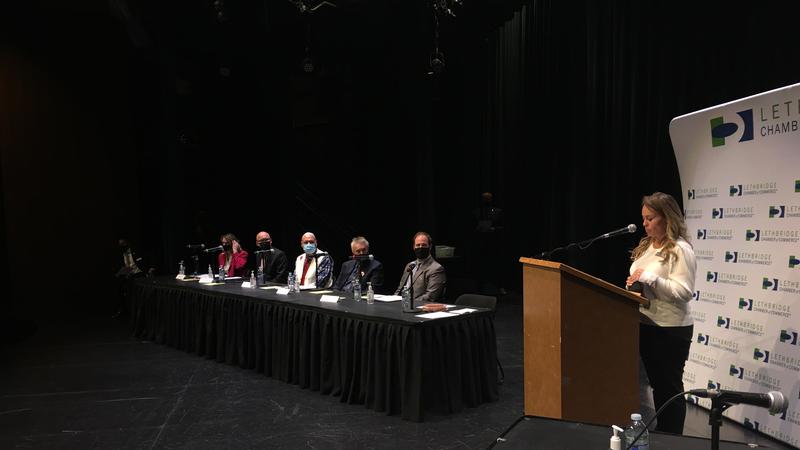
Full transcript & video of Lethbridge mayoral candidates forum
LETHBRIDGE, AB – If you live in Lethbridge and are still deciding who to vote for in the municipal election, we made sure to take detailed notes for you.
On Monday, the Lethbridge Chamber of Commerce hosted the city’s mayoral candidates for a forum and Q&A at the Yates Memorial Theatre.
Candidates Sheldon Day Chief, Blaine Hyggen, Gary Klassen, Bridget Mearns, and Stephen Mogdan took part. Kolton Menzak was unable to attend.
Harold Jansen served as the forum’s moderator while LNN’s David Opinko was one of four local media representatives on a panel that got to ask questions. Several questions also came from those in the audience.


